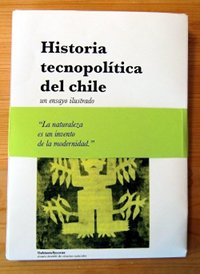 Lo que sigue es parte de una conversación con Paolo Pedercini, con el que intercambié algunos mails para el artículo sobre La Molleindustria del Mugalari. Esta última pregunta se salía del contexto de la entrevista y no la incluí en el texto final (de hecho, lo más interesante se queda casi siempre fuera…). Dice así:
Lo que sigue es parte de una conversación con Paolo Pedercini, con el que intercambié algunos mails para el artículo sobre La Molleindustria del Mugalari. Esta última pregunta se salía del contexto de la entrevista y no la incluí en el texto final (de hecho, lo más interesante se queda casi siempre fuera…). Dice así:
Paolo >> That’s an interesting issue. I tried to animate this debate for some years in Italy, I was also commissioned to write a book about it and I gave up last year when I was at one third. I’ll try to put it briefly.
IMHO the web 2.0 is the corporate response and the capitalization of the long wave of DIY media. The wave that essentially started from the 70s with the Radical Software magazine and that culminated in the early 00s after the contamination with the punk and hacker countercultures.
As media activist hacktivists we failed to provide decentralized and autonomous platforms that could compete with social networks and user generated content portals. Indymedia never changed since its inception and the best minds within the movements were probably too busy in producing obscure and unfriendly applications for linux.
But overall, if media-activism is just about empowering people and challenging the unidirectional corporate-controlled media, we basically won the battle. If the point is the radical transformation of society becoming the media is just not enough ’cause if you give means of communication to a random person you would probably have (bad) products that reflect the cultural hegemony.
Anyway, I think media activism has been overrated, communication is the easiest, funniest part of activism but it’s certainly not the most important one. I think we should continue to defend and create autonomous spheres of communication but at the same time fight back the connection/informational consumerism. Get more digitally disconnected and more analogically connected. Apply the transformative efforts to the dynamics of material production. I mean food, goods, energy and so on.




La capacidad del sistema de fagocitar iniciativas sociales es inmensa. Cuando se pone en marcha la impresionante rueda de interiorizarlas y reconvertirlas en alimento para que parezca que tienen voz, entonces es cuando nos damos cuenta de que hay que jugar de otra forma. Cada cual desde su rincón. Quizá en forma egoísta, quizá mirando al procomún, pero en cualquier caso es un reto a nuestra inteligencia. Hay que encontrar caminos alternativas y estar alerta porque el sistema nos atonta.
hola maría!
Quizás lo que la web 2.0 ha puesto de manifiesto es la ingenuidad de algunos de los presupuestos de los que se partían. Pensábamos que con ‘dar voz a los sin voz’ se produciría una transformación radical, pero resulta que ahora el problema no es tener la capacidad para expresarse, sino decir algo interesante / transformador que decir… Esto es, que la mera participación no garantiza nada, y que el desafío reside en ser capaces de generar discursos transformadores.
Sí, absolutamente de acuerdo. Sigue siendo necesario -muy muy, cada vez más- pensar criticamenet en la relación con el medio. Cómo nos comunicamos, para qué, para quién.
La prod/user revoluión es una gran falacia: las compañias tecnologicas ponen el softweare (en beta) y nosotros lo probamos, lo mejoramos, metemos los contenidos, creamos las redes… ¿Para qué? ¿Para quién?
Free labour para Google & Cia (free as in free beer!)